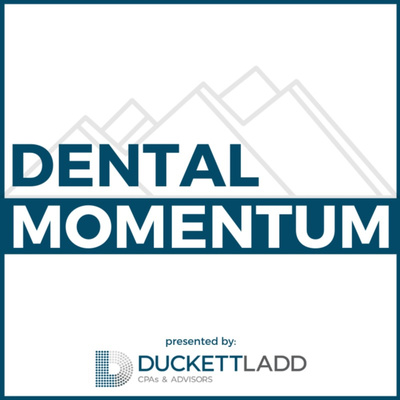No dentist wants to pay more taxes than necessary, but not every dentist takes the necessary steps to optimize their tax situation. Efficient tax management requires a dedicated approach, but can make a substantial difference in the profitability of a dental practice.
In the dental industry, there’s a particularly high level of variability regarding taxation outcomes, as dentists operate under a number of different business structures.
In this primer on dental practice tax planning, we’ll highlight a few essential strategic areas for saving money on taxes. There’s no substitute for one-on-one consultation with financial professionals, but the info below provides a helpful overview of tax planning for dentists.
Understanding Tax Liabilities
Tax liabilities for dentists vary based on the structure of the business, the amount of revenue generated, and which US state the business operates in. Tax liabilities include:
- Income tax: the state and federal taxes paid on income, with federal tax rates ranging between 10–37% based on income bracket
- Self-employment tax: social security and Medicare taxes for self-employed individuals
- Sales tax: dental services are not subject to sales tax, but medications and products may be; dentists who sell certain materials to patients, such as dental supplies, may be liable for sales tax
Misunderstanding tax liabilities, such as failing to collect sales tax, can lead to inaccurate records or underpayment of taxes. These problems result in audits, penalties, and other complications.
Meanwhile, many dentists pay more taxes than they need to. Overpayment is often the result of a failure to choose the ideal business structure or to take advantage of all available deductions.
Tax Deductions for Dentists
A tax deduction, also known as a write-off, is a sum deduced from the amount owed by a taxpayer. Common deductions for dentists include:
- Equipment and equipment depreciation
- Patient freebies (items such as toothbrushes that you give to patients for free)
- Staff expenses
- Job search costs, moving expenses, and business-related travel
- Lifetime Learning Credit (education expenses)
- Child care expenses
- Charitable donations
These are just a few of the deductions that are often available for dentists. The best way to take advantage of all available deductions is to thoroughly discuss your situation with a tax professional.
Choosing the Right Business Structure
There are a number of different business structures for dentists. Different structures offer varying advantages regarding compliance, flexibility, and taxation.
Business structures for dentists include:
- S corporation (S corp)
- C corporation (C corp)
- Sole proprietorship
- Limited liability company (LLC)
- Professional limited liability company (PLLC)
- Professional association
For many dental practices, an S corp is the best option for minimizing tax liability. Under this structure, dentists pay themselves wages that can be deducted from business income.
The tax advantages and flexibility of an S corp are ideal for many dentists, but there are circumstances in which selecting a different structure may be beneficial. If you’re in the process of choosing a business structure, it’s advisable to consult with a financial professional before committing to a course of action.
Retirement Planning and Benefits
Along with choosing the right business structure and filing optimized tax returns, retirement planning is a key component of saving money on taxes. By contributing as much as possible to your retirement accounts, you can substantially reduce your tax burden. Suitable plans for dentists include 401(k), Simplified Employee Pension Plan (SEP IRA), and the Savings Incentive Match Plan for Employees (SIMPLE IRA).
Along with maximizing tax benefits from your own retirement contributions, tax considerations are also an important part of selecting which benefits you provide for your staff. Benefits like Health Savings Accounts (HSAs) or Flexible Spending Accounts (FSAs) are powerful hiring incentives that offer tax advantages for both employer and employee.
Working with a Dental CPA
To implement the strategies described above, it’s smart to build a lasting relationship with a dental CPA—an accountant with dental industry expertise who can assist with tax filing, retirement planning, and financial advising.
Dental CPAs keep you updated with the tax law changes that affect small business owners, as well as regulations that specifically affect the dental industry.
If you partner with a full-service financial firm like Duckett Ladd, you can arrange customizable services that include everything from bookkeeping to acquisition planning.
Get Help with Taxes for Your Dental Practice
The tax experts at Duckett Ladd can help your dental practice with tax planning, accounting, and business strategy. We’re a team of advisors and CPAs that works exclusively with dentists. To discuss tax-saving strategies and other financial services for your dental practice, contact Duckett Ladd today.
Disclaimer
Duckett Ladd, LLP does not provide tax, legal, or accounting advice. This content has been prepared for informational purposes only and should not be relied on for, tax, legal, or accounting advice. You should consult your own tax, legal, and accounting advisors before engaging in any transaction. Also, tax law is ever-changing, and every effort should be made to seek out the most current information. Make sure to check the date of published content to ensure the most current information








